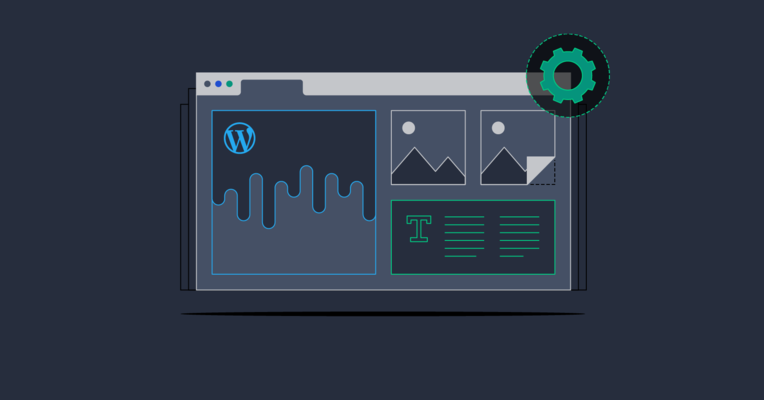Demand for Vue.js Talent Is Extremely High
Despite a challenging year for job seekers, demand for software developers is expected to grow significantly over the next decade. The latest job outlook data from the U.S. Bureau of Labor Statistics projects the creation of 327,900 new software development roles from 2023 to 2033, a 17% increase from the 2023 total of 1,891,100. This promising growth outlook far surpasses the 4% average ten-year growth rate projected across occupations.
Developers who have expertise in Vue.js are likely to be particularly attractive to employers in the years ahead. The versatile front-end framework for creating graphical user interfaces is well-regarded for its approachability, component-based architecture, and high-performance rendering. Used by multinational companies such as Netflix, Apple, and Airbnb, Vue.js was ranked sixth in a 2022 Stack Overflow Annual Developer Survey of the most common web frameworks, with nearly 19% of professional developers reporting using the tool.
Even as the number of developers with Vue.js skills is growing, the talent pool remains relatively small compared to those of more established front-end frameworks like React and Angular or JavaScript-based back-end frameworks like Node.js. This makes it difficult to find and hire Vue developers familiar with the framework’s nuances.
This hiring guide outlines the technical and soft skills to look for in top Vue.js developer candidates, along with recommendations for crafting a compelling job description, average hourly pay rates, and interview questions to ensure you select the right candidate for your project.
What Attributes Distinguish Quality Vue.js Developers From Others?
As you begin your search, you’ll want to identify the key skills that differentiate highly qualified candidates from those still finding their footing. Here are four essential skills to look for:
Expertise in Vue.js Fundamentals
A thorough understanding of Vue.js core tools—such as its directives, lifecycle hooks, and instances—is crucial for managing data efficiently and handling user interactions. Look for candidates with extensive practice using Vue’s reactivity system and techniques like data binding, conditional rendering, and component scripting to build dynamic applications. Experience using Vue’s CLI (command line interface) is also essential, as it streamlines project setup and supports customization, unit and e2e testing, and automated dependency management.
Demonstrated Experience with State Management
For larger applications, managing an application’s state can become quite complex. A qualified candidate should be proficient in using Vue’s open–source state management library, Vuex, to ensure consistent, predictable data flow across components. As Vuex is often used with Vue Router to manage state changes, developers should know how to use the navigation tool to configure nested routes, support single-page applications (SPA), and implement route guards to control permissions and enhance user experience.
HTML, CSS, and JavaScript Mastery
A talented Vue.js engineer will have a deep understanding of foundational web technologies like HTML, CSS, and JavaScript. Their professional history should include experience with modern JavaScript features (ES6+), asynchronous programming (promises, async/await), and CSS preprocessors like SCSS or LESS used with Vue.js projects. Understanding these development mainstays—the building blocks of all Vue applications—enables better component design and styling, effective troubleshooting, and smooth integration with Vue’s reactivity system and third-party libraries.
Exceptional Problem-Solving and Communication Skills
In addition to technical aptitude, top candidates should have exceptional problem-solving and communication skills. Vue.js developers often work on cutting-edge teams with designers, product managers, and DevOps professionals. To optimize web app performance and advance business goals, they need the soft skills to explain technical concepts clearly and collaborate effectively with colleagues to address bugs, anomalies, and usability defects.
How Can You Identify the Right Vue.js Developer for You?
When hiring a developer, the first step is to define your business needs and identify any skills gaps within your team. A problem statement outlining your project requirements, objectives, and technical challenges will help refine your search. Consider these common scenarios:
-
Building a new single-page application (SPA): For creating an entirely new SPAs, expertise in Vue Router and Vuex are essential. The developer should also be familiar with Vue CLI, a command-line tool for project scaffolding, and Webpack for code bundling; they should have the project management skills to coordinate multiple workflows with other development team members.
-
Adding new features to an existing app: Look for developers who are comfortable working with existing codebases and can integrate new functionality with minimal disruption. Experience with component-based architecture and Vue.js lifecycle hooks is valuable.
-
Maintaining and optimizing an app: If your app needs performance improvements or regular updates, you’ll need someone skilled in optimizing Vue components, handling state management effectively, and improving app speed through techniques like lazy-loading or code-splitting.
Once you have a clear sense of your project needs, you can establish a salary or hourly fee range for the role. A comprehensive guide on Vue.js developer compensation in 2023 shows that developers in the United States earn an average hourly pay rate of $69, with hourly rates ranging from $47-$171, and most developers’ rates falling between $58 (25th percentile) and $72 (75th percentile).
As skill level, location, and specialization influence rates significantly, evaluating your pricing structure against market rates for comparable roles in cost-analogous countries and regions is crucial. In the United States, developers with less than a year of experience earn an average hourly rate between $27-43, while those with 15 or more years of experience earn between $42-$70. Pay rates in the United States are among the highest in the world, and fees in Central and South America, Europe, Asia, and Africa are likely to be significantly lower. Nevertheless, deciding whether a junior, mid-level, or senior candidate is the right match for your team is a good first step in determining an appropriate fee range.
Junior developers typically have less than two years of experience. They will likely need to work under close supervision as they learn the fundamentals of Vue.js and web and mobile app development. They are a good choice for handling simple tasks such as developing small features or repairing bugs, but they will need to develop their skills before moving into more independent roles.
Mid-level developers have about two to five years of experience. They are generally proficient in Vue.js and capable of working independently. Comfortable fulfilling a range of tasks, including building reusable components, integrating application program interfaces (APIs), managing application states with Vuex, and using Vue Router, they can be relied on to tackle sophisticated development projects. Mid-level candidates with experience with testing (unit and integration), performance optimization, and implementing best practices for lazy loading and modular architecture can be especially beneficial for companies building large-scale applications.
Senior developers will have a robust skill set that includes deep expertise in Vue.js and JavaScript. With at least five years of experience, they understand front- and backend technologies and are capable of designing scalable, maintainable architectures; mentoring junior colleagues; and steering end-to-end technical initiatives. Highly qualified senior developers will be skilled in modern JavaScript (ES6+), TypeScript, build tools (Webpack, Vite), and testing frameworks (Jest, Cypress), along with best practices for performance optimization and data security.
A strong developer should be comfortable working with a tech stack that supports the platform and optimizes its capabilities. This will typically include core tools like Vue 3, Vuex, Vue Router, Node.js (or other back-end technologies), RESTful APIs, and GraphQL; testing libraries such as Jest, Mocha, and Cypress; the styling and markup languages CSS and HTML, and the JavaScript framework on which Vue.js was built.
How to Write a Job Description for Your Project
In your job description, it’s essential to clearly define the required technical skills and responsibilities, along with the type of project the developer will be called on to perform. Be clear about the scope of the role—whether it involves building a new app, maintaining an existing one, or adding new features to a complex system. You should also specify whether the position requires backend integration with Node.js or APIs, thus demanding a full-stack developer, or can be managed exclusively by a front-end developer.
The role’s title should be clear and specific, such as Vue.js Developer, Front-end Developer (Vue.js-focused), Full-stack Developer (Vue.js and backend), or JavaScript Developer (with Vue.js specialization). While desired skills and qualification requirements will vary depending on your project goals, the following list offers an instructive template to adapt to your needs.
- Strong experience with the Vue.js framework and its ecosystem (Vuex, Vue Router)
- Proficiency in JavaScript (ES6+), HTML5, and CSS3
- Familiarity with Vue CLI and webpack
- Knowledge of CSS frameworks (e.g., Bootstrap, Tailwind CSS)
- Experience with responsive design, mobile app development, and mobile-first design approaches
- Understanding of unit testing (Jest, Mocha)
- Experience with API integration and asynchronous operations (AJAX, GraphQL)
- Version control with Git and GitHub/GitLab
What Are the Most Important Vue.js Interview Questions?
During candidate interviews, it’s important to ask questions that assess the developer’s technical expertise, problem-solving abilities, and familiarity with Vue’s ecosystem. Below are four helpful interview questions, along with suggested responses:
Can you explain the difference between the Options API and the Composition API?
The specificity of this question offers a good gauge of a candidate’s familiarity with Vue.js and the evolution of its APIs for defining components and bundling code. The Options API is the traditional way of describing a Vue component, using properties like data, methods, computed, and watchers to organize code by the type of functionality it affords. The Options API is easy to implement but limited in its scalability. By contrast, the Composition API, introduced in Vue 3, organizes code by grouping related logic sequences using ref, reactive, and watch commands. It offers greater flexibility, especially in large projects, by enabling reusable logic and better TypeScript support.
Vue’s reactivity system is crucial to optimize page performance. By automatically tracking data changes and updating a document object model (DOM) accordingly, Vue selectively renders parts of a user interface that rely on dynamic data. A strong candidate will be able to articulate how the system works, using a dependency tracking system and Proxy objects (Vue 3) to ensure smooth updates. The candidate should also mention performance optimization techniques such as lazy loading, virtual scrolling, or efficient component design for handling large datasets, signaling their ability to manage complex applications effectively.
How do you handle state management in Vue.js, and when would you choose Vuex over alternatives like the Composition API or external libraries?
Vuex is Vue’s state management library, which supervises data changes, calculations, and API calls shared across components. It uses a single-state tree to centralize data storage. A qualified candidate will be able to describe how Vuex interprets mutations (synchronous changes to state), actions (asynchronous logic), and getters (state accessors) to provide a predictable way to manage complex states. The candidate should also describe scenarios in which the Composition API or external libraries like Pinia may be more appropriate than Vuex, indicating their ability to choose the best solution for a project’s needs.
Can you describe a time you had to collaborate with a non-technical team member? How did you ensure clear communication?
This question considers a candidate’s communication skills and experience working with cross-disciplinary stakeholders. A strong response will include a concrete example of an instance when the candidate collaborated with a non-technical team member, such as a designer or product manager. The best candidates will stress their ability to express technical concepts in simple, approachable language. They might discuss their use of collaboration platforms, presentation tools, screenshots, or technical documentation to help clarify their ideas. Consider how well the candidate will be able to adapt to the culture and practices of the broader organization. Are they open to constructive feedback? Do they have strong interpersonal skills? Will they make a faithful effort to listen to their colleagues and honor their ideas?
Where to Hire a Vue.js Programmer
Hiring Vue.js experts can be accomplished in many different ways, including in-house hiring, outsourcing, or via on-demand, vetted talent platforms.
In-house Hiring
Larger companies typically hire at least a small number of full-time, in-house developers or IT staffers to build and/or maintain their core technology stack. Hiring is typically accomplished through technology recruiters or by placing job ads on sites like Indeed, Glassdoor, or LinkedIn.
Outsourcing
With developer outsourcing, a firm hires external individuals or companies—often located in different countries—to handle Vue development tasks. This approach allows businesses to access specialized skills, reduce costs, and speed up project delivery by leveraging global talent and resources. Typically, the client and the outsourced developers establish a clear agreement outlining project expectations and timelines before work begins.
Sourcing Vue development teams through a vetted, on-demand platform is a good option for startups, SMBs, and enterprise-level companies. In this model, the marketplace verifies the skill set of each local or offshore developer through testing and interviews. Some platforms also offer:
- Matching services in which a talent specialist matches companies with candidates who have the preferred experience, communication skills, and industry experience
- The ability to hire dedicated Vue developers, part-time or hourly developers, or entire development teams
How Much Does It Cost to Hire a Vue.js Developer?
Vue.js is primarily a front-end framework, so we’ve compiled information on the average salaries of front-end developers from several countries via Glassdoor, and have reported them below in US dollars. Please note that actual pricing can vary greatly, with experienced developers able to demand higher pay.
Country | Median total salary per year, USD |
United States | $120,000 |
Canada | $54,700 |
Mexico | $17,900 |
Brazil | $12,900 |
United Kingdom | $70,000 |
Germany | $71,000 |
Romania | $24,800 |
Ukraine | $36,000 |
Australia | $69,400 |
Source: Glassdoor, July 2025
These numbers represent the median incomes as reported by Glassdoor’s proprietary Total Pay Estimate model based on salaries collected from the platform users. Wages in many areas consist of a base salary and additional pay, which may include cash bonuses, commissions, tips, and profit sharing. Glassdoor information and the currency exchange rates were accurate as of July 2025.
Why Do Companies Hire Vue.js Developers?
Vue.js is one of the fastest-growing web frameworks, mainly because of its simplicity, flexibility, and ease of integration. Its reactivity system enables efficient DOM updates, while its lightweight, component-based design and clean code structure make it easy to maintain and scale applications as businesses grow.
Hiring a developer specializing in Vue.js’s front-end framework is essential for companies seeking to leverage the technology to build or extend dynamic, scalable web applications. Talented Vue.js developers offer extensive knowledge of the framework’s core tools, including its data-tracking reactivity system, state management library, Vuex, and dynamic routing features. By hiring the right developer for your team, you can unlock the capabilities of a robust framework that supports fast development cycles, seamless integration with other technologies, and high-quality, user-friendly web applications.




























